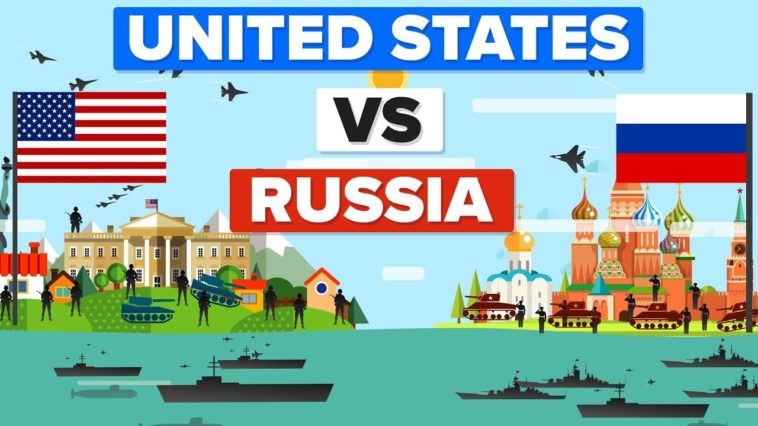
Washington demands from other nations what it would not tolerate for itself. What if there were Russian missiles in Canada? – asks Doug Bandow, a Senior Fellow at the Cato Institute, a former Special Assistant to President Ronald Reagan, at ‘The American Conservative’.
Imagine it is October 2025. A ceasefire has been achieved between Russia and Ukraine. Moscow’s attention shifted to North America. Canada’s left-wing prime minister leaned toward making a trade deal with Russia and its Central Asian partners. Washington, however, offered a last-minute financial sweetener, an early Christmas present of sorts, and Ottawa turned back to the U.S.
Angry crowds hit the streets, causing chaos in Canada’s capital. Moscow promotes the violence, as its propagandists lauded democracy in action. When the police give way, Canada’s premier flees south. Russian operatives begin putting their candidates for office forward, and new elections confirm a sharp shift toward Russia, which invites Ottawa to join the Collective Security Treaty Organization. The U.S. responds by invading Canada. The Canucks prove surprisingly resilient against personnel used to fighting distant irregulars, and Moscow floods Canada with weapons, including missiles, for use against America. The first salvo results in strikes on cities across America, including on the U.S. Capitol in Washington, DC.
Predict Washington’s reaction.
1) Officials admit that Moscow had every right to send arms for Canada’s defense, noting that “it’s something that we did for Ukraine”;
2) policymakers agree that the costs of the continuing war were too great and decided to make a humiliating withdrawal;
3) the president warns that unless Russia stood down “immediately,” there would be serious and deadly consequences.
Before answering, remember the Cuban Missile Crisis. Of course, there would be major differences from October 1962. Yet the disparity of interests between the parties and the willingness of the threatened party to take greater risks are similar. Moreover, though Moscow is weaker conventionally, nuclear weapons are the ultimate equalizer. Indeed, the mere threat of Russian nuclear strikes might drive allied states out of the fray.
Nevertheless, Ukraine, allied states, and many American politicians continue to press the Biden administration to allow Kiev to use anything for any purpose against Russia. And American officials piously dismiss Vladimir Putin’s claim that approving use of U.S. missiles for use against Russia would place the two nations at war. Nevertheless, cooler heads may yet prevail.
Only a couple weeks ago commentators were certain that Washington would join London in approving removal of restrictions on Ukraine’s use of Western missiles. However, no announcement was forthcoming. The administration’s refusal to toss caution to the wind has generated a tsunami of caterwauling, especially by European governments (even though the Pentagon does not believe lifting restrictions would turn the military tide in Kiev’s favor).
In any case, there is an obvious reason why Putin has not yet acted. He is not squeamish about brutally suppressing his opponents. Moreover, it is foolish to underestimate the Russian military, despite its blundering setbacks in Ukraine. The force remains potent and has adapted well to the changing combat. Moscow possesses a nuclear arsenal comparable to America’s in size and better prepared for tactical use.
Nevertheless, Putin remains a generally pragmatic, rational actor, despite a likely lack of honest feedback about his policies. So far he has sought to limit U.S. and European support for Ukraine with threats, but probably has failed to act on them because until now the risks have seemed greater than the rewards. Yet his assessment might change.
But the war could evolve unpredictably. Even irregular missile strikes on Moscow and other high-profile targets might increase domestic pressure on him to respond. Already the strongest internal criticism of his war policy comes from hawks, not doves. If Moscow elites begin to feel insecure, they could demand immediate and tougher retaliation.
So far Moscow appears to have been cautious about upsetting other nations with which it has cultivated relations, including Saudi Arabia, Israel, and South Korea. However, Putin could decide that forbearance encourages continued U.S. escalation. He also could focus on America by, for instance, aiding North Korean construction of ICBMs capable of targeting the U.S. (The Republic of Korea already is within Pyongyang’s gun sights.) Such technical assistance would be difficult to discover and counteract.
Worse, Moscow could aid North Korea’s existing and Iran’s presumed nuclear ambitions. Until now Russia has opposed proliferation. However, if the Putin government perceives the U.S. and NATO as waging war on Russia, that could change.
The U.S. and Soviet Union fought several proxy wars, but always preserved a degree of distance and deniability. Today Americans and Europeans openly plan to spread fire and brimstone throughout Russia. Flip the situation around: Who believes that U.S. policymakers would submissively accept Russia sending missiles to Canada for use against America? Why assume that Russia would be more welcoming?
The U.S. should avoid an unnecessary confrontation with Russia, a nuclear-armed major power, over interests that the latter believes to be vital. Putin has proved that he believes Ukraine is worth fighting over, while the U.S. did not before and does not now.
With Washington prepared to approach the military brink, Moscow cannot afford to back down.
What should NATO, and especially the U.S., do in Ukraine?
This is no video game which can be reset at will. If Americans would not accept another nation supplying missiles to bombard the U.S. homeland, they should not expect Russians to do the same.
President Joe Biden will leave a far more dangerous world than when he arrived. It is essential that he not prime Ukraine for a nuclear explosion on his way out.
read more in our Telegram-channel https://t.me/The_International_Affairs

 9:55 30.09.2024 •
9:55 30.09.2024 •






















